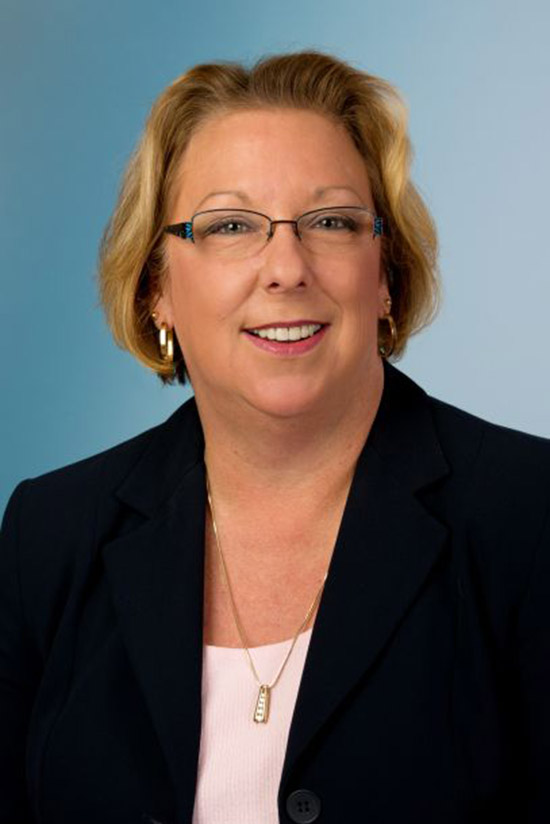
|
《財富》美國500強內部網絡作為一個內部社區,將有《財富》美國500強公司的高管們在此與《財富》雜志全球的讀者們交流思想和提供領導建議。今天我們的問題是:20多歲的年輕人應該如何為成功做好準備?以下為博格華納公司人力資源副總裁吉姆·杰尼特的回答。 成功在很大程度上需要依靠人脈來實現。你或許認為,我持有這種觀點的原因是,我在人力資源部門工作,人才是我們的核心資本。這種想法沒有錯,但我同樣相信,這是我對不同職能部門、行業甚至文化的觀察結果。我先后在多家公司摸爬滾打了30多年,還是有一點后知后覺的優勢的——對于如何取得長遠成功,我有三條建議,這些建議曾經讓我受益良多。 首先,找一位導師。我曾有過一位,現在還有一位導師,而且我自己也做過別人的導師,我的經驗可以證明導師的寶貴價值。導師經驗更豐富,可以為一個人提供指導,支持他或她實現自己的職業發展目標。導師可以指引你做出初期的職業決定和未來的艱難抉擇。導師能夠提供中立的觀點和第三方視角——他們所帶來的新見解、智慧和經驗,將讓你受益匪淺。 在職業發展初期,你可能很難弄清楚,哪個方向可以給你提供最好的進步階梯。正是在這個充滿機遇的時期,你希望自己平步青云,獲得迅速晉升,而導師可以幫助你開拓視野,做出更周全的決定。 在我初入職場時,一位導師鼓勵我完成學業,并指引我進入人力資源行業。我先后取得了學士和碩士學位,之后我的職業得到了飛速發展。正是在導師的鼓勵和培養下,我才能做出這些對職業發展至關重要的決定,但當時我還沒有意識到這些指導的重要性。 我現在的導師來自博格華納公司之外。每當我面臨棘手的情況,需要外部觀點提供支持時,我便會與導師交流——在我需要建議的時候,我可以向他請教。 正式的導師關系固然重要,但非正式的導師同樣很有幫助。事實上,許多人都有自己的導師,只是我們沒有意識到而已。你的兄弟姐妹,你的朋友,甚至宗教領袖,都可能成為非正式的導師,他們能夠帶來外部視角,以及自己的成熟經驗和教訓。 還有你的同事。永遠不要低估培養同事關系的重要性——包括組織內橫向和縱向的同事。即便“差勁的”老板也可以給你提供一些經驗,雖然這種教訓往往是反面的,警示你采取某些錯誤的管理方式。 那么,你如何培養這些關系?通過面對面的接觸。我要特別強調這一點。Facebook和iPhone不會幫助你發展人際關系。你必須走出去,與人面對面交流。你將從他們口頭或非口頭的暗示中,獲得有價值的見解。發短信無法為你建立豐富的人際關系。人際關系很重要:它們是導師方程式中至關重要的一部分。 要靈活,要移動起來, 以開放心態對待新事物 我經常看到,人們在工作中太過安逸,導致真正的成長和發展陷入停滯。但一旦你走出舒適區,接受新的挑戰,你會發現許多令人興奮的事物。你將豐富自己的技能,拓寬視野,即便你只是在組織內部橫向調動,而不是晉升。關鍵是知道應該在什么時候行動起來。沒有人想頻繁換工作,但打個比方,接受一份異地的工作或者在另外一個國家接受一份短期任務,可以幫助你獲得新的技能與經驗,讓你為長遠成功做好準備。 當然,這并不意味著這個過程沒有風險。你可能需要更努力地工作,新工作可能更有挑戰性——所以,有些人并不愿意接受它。在前往底特律之前,我在芝加哥的工作一直很安逸,我很喜歡這樣的狀態。后來我得到了一個新的機會,但工作地點是在其他州。當時,我的導師要求我在認真權衡得失之后再做決定。在那之后,我一直在博格華納工作,我可以毫不猶豫地告訴你,你所承擔的風險都是值得的。那次變動為我打開了一個全新的世界,給我帶來了新的人際關系、新的挑戰和新的經歷。走出舒適區,幫助我通過一種從未想象過的方式不斷成長。在這個過程中,我遇到了許多新的機遇,最終讓我在人力資源領域取得了巨大的成功。 年輕人們應該始終牢記,要靈活,要移動起來,以開放心態對待新事物,只有這樣,你才能為今后的成功打好基礎。做到這些,你將變得與眾不同,并在競爭中脫穎而出。(財富中文網) 譯者:劉進龍/汪皓 審校:任文科 |
The Fortune 500 Insider Network is an online community where top executives from the Fortune 500 share ideas and offer leadership advice with Fortune’s global audience. Kim Jenett, vice president of human resources at BorgWarner, has answered the question: What can 20-somethings do to set themselves up for success? Success is, in large part, about people. You may think my point of view is such because I work in human resources where people are our capital. While this is true, I believe my observations cross functional disciplines, industries, and even cultures. With more than three decades of corporate experience behind me—and thus the advantage of 20-20 hindsight—I offer three pieces of advice for long-term success, each of which has served me well. First, find a mentor. I’ve had one, I currently have one, I have been one, and I am proof that they work. A mentor is someone who is more experienced and can help guide an individual in support of his or her professional development goals. It is someone who can guide you in making early career decisions and tough choices later on. A mentor has a neutral voice and a third-party perspective—someone who can provide new insights, wisdom, and experiences that you can learn from. Early in your career, you may grapple with which direction might provide the next best stepping stone. It’s during this time of opportunity where you’ll want to quickly move through the ranks, and a mentor can help you see the broader picture and make thoughtful decisions. When first starting out in my career, a mentor encouraged me to finish my education and guided me to an HR career. I completed a bachelor’s degree, a master’s degree, and then quickly progressed. These were crucial career-building steps that my mentor encouraged and nurtured, but I didn’t realize how impactful this guidance was at the time. My mentor today is someone outside of BorgWarner who I talk to when I need an outside perspective on maneuvering through sticky situations—someone who I can turn to when I need advice. While formal mentorships are important, informal ones can be equally so. In fact, many people have mentors and don’t even realize it. A sibling, a friend, and even a religious leader can be an informal mentor who offers an outside perspective and a set of his or her own experiences ripe with learnings. Next up are your colleagues and co-workers. It’s critical not to underestimate the value of developing relationships—both up and across the organization. Even “bad” bosses offer lessons—even if that lesson is in how not to manage people. So, how do you cultivate these relationships? Through face-to-face contact. I can’t stress this point more ardently. Facebook and your iPhone won’t get you there. You have to go out and meet with people. You will gain valuable insight from their verbal and nonverbal cues. Rich relationships don’t happen via text messaging. Relationships matter: They’re a significant part of the mentoring equation. Be flexible, mobile, and open to new experiences I see it time and again where people get so comfortable at a job that real growth and development become stagnant. But exciting things happen when you go outside of your comfort zone and take on new challenges. You’ll broaden your skills and view of the world, even if you’re moving across an organization vs. up. The key is knowing when to make these moves. You don’t want to job hop, but taking a job in a different location or a short-term assignment in another country, for example, can give you a set of skills and experiences that will set you up for long-term success. This doesn’t mean there isn’t risk involved. You may have to work harder, and the work may be more challenging—some people aren’t willing to take that on. Before moving to Detroit, I was comfortably working in Chicago at a job I really liked. When I was offered a new opportunity that required me to move to a new state, my mentor pressed me to think very critically about what I had to lose and what I had to gain. I’ve been at BorgWarner ever since, and I can tell you without hesitance that the risk was well worth it. The move opened up a whole new world for me, with new relationships, new challenges, and new experiences. While it was way outside of my comfort zone, it helped me grow in a way that I couldn’t have ever imagined. And it opened up a number of future opportunities that helped shape a very successful career in HR. Remember to always set yourself up for future success by being flexible, mobile, and open to a variety of experiences. It will truly make a difference and set you apart from others. |






